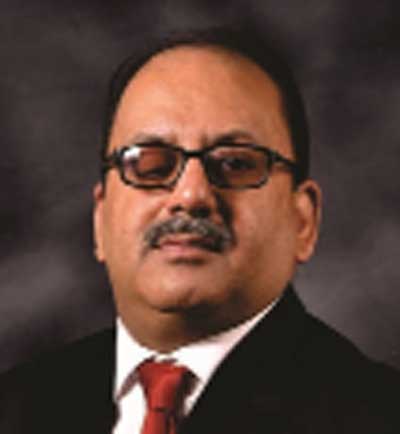Soft power introduced by Joseph Nye in the late Twentieth Century depicts a major break from the earlier traditionalist way of getting foreign policy goals. While, the hard supporting power is based on threats posed through the use of force or economic power, the soft supporting power is based on the ability to draw others through force of personality. It refers to a country’s capacity to influence the preferences of others in terms of cultural and political values as well as foreign policies, which are legitimate and broadly moral standards.
An understanding of the nature of infrastructure and application of soft power seems to be even more important as the character of the international system develops. Culture relates to soft power instruments in a way that soft power has many techniques such as cultural exchange programs, international communications and broadcasting among others. Other ways through which the countries can increase their soft power includes showing and explaining their culture, their values and institutions.
For example, the United States has been seen for many years actively using films, music and technologies as tools for shaping a friendly image around the world. The youth of the developed world has made great contribution while the appeal of American culture has attracted millions of international students in the country’s universities, who might take positive impressions back to their respective nations.
A side from pumping up Americas soft power this educational outreach also plays big role in Americas economic strength by promoting innovation and cooperation.China’s approach toward soft power is indeed complex and has changed over time in the recent past. The Chinese government has greatly sought to fund cultural projects in a bid to boost the image of the country. Such institutions as the Confucius Institutes around the world are the best examples of the tactics used by China in spreading own language and culture.
Moreover, China has used economic power through avenues like the BRI besides seeking to enrich the participating countries’ trade relations, it works towards taking advantage of goodwill extended by creating infrastructure investment as well as economic development appeals. But still, there exists some issue with the China’s soft power due to the human rights violations question and rather aggressive China’s foreign policy, concerning South China Sea, for instance.It is understandable that the concept of soft power exercise is inherent in the India civilization and democracy. Unlike massage or aromatherapy, one of the soft power instruments utilized by the Indian government include Yoga, Bollywood and Indian food.
Moreover, India has supported democracy and pluralism, which is a sign in many countries searching for an alternative to the authoritarian regime. India’s approach embodies the strategy of building relations based on cooperation in the sphere of development as well as capacity enhancement and is articulated in African countries through the India-Africa Forum Summit. But the application of soft power by India lacks coherence as internal problems like the Gujerat riots, caste and poverty system reduces credibility abroad.
It also means that the viability of soft power fully depends on the ability of the individual states to link them to the principles they proclaim. For example, the United States has been accused of a paradox between the promulgation of establishing democracy citizenship and human rights in the international level and the U S ‘real-politic’-that is mainly the act of war and ‘sanctioning’ dictators in various nations. Of the following counterpoints, some can undermine and put a dent in the effectiveness of the implemented American soft power.
On the other hand, there is an inverse correlation between the perception of nations in the international sphere and foreign policies inasmuch as the latter promotes the fundamental values of a country. The interaction between soft and hard power is evident in case of the European Union (EU). Borrowing Michel Foucault’s concept of governmentality, the EU was able to expand into the former Eastern bloc after the Cold War because it was able to use the means of promised rewards and democratic conditionality as soft power. The EU was able to expand its membership while stabilizing the region by giving members a voice in decision-making and supporting the common – and worthwhile – goals of the rule of law and human rights. This case shows that soft power can be used to achieve concrete geopolitical objectives without necessarily having recourse to force.
It has been different with Russia which has been more assertive in employing soft power measures, and there have been frequent intersections with hard power instruments. While Russia fosters the consciousness of its culture through media outlets obtainable in the state (for instance, RT) and events like cultural festivals, its actions are mostly effectively countermarked by military incursions into countries within its vicinity, for instance Ukraine or Georgia. The discord between the cultural diplomacy and actual steps, which Russia takes under the cover of soft power, thus raise doubts in the West and put constraints on applicability of the soft power strategies.
Soft and hard power are believed to be inverses, nonetheless, soft and hard power can function together in synergy what is referred to as smart power. And this approach supports that depending on the situation, there should be an optimal mix of both types of pressure. For instance, during humanitarian operations or peace supporting operations, it is possible that a country will use soft power resources – like supplying humanitarian assistance or serving as a mediator in conflict – and at the same time, will ensure that it has a strong military force so that no attacker begins their attack. Therefore, the place of soft power in the interaction of countries in the international systems can hardly be overemphasized given the complexities of the ever-Connected World.
While using soft power studies the world over, different countries on different levels to achieve the general foreign policy objectives: so successful the United States, China and India in the use of soft power strategies mentioned above. Thus, although the notion of hard power is still strong in national security concepts, the eternal attractiveness of culture, and values and diplomacy, the verb demonstrate that attraction is equally powerful as coercion in the management of world processes. Following the ongoing dynamism in international politics due to change in political maps, the success of any nation seeking to gain sustainable influences within international politics will heavily rely on the successful application of soft power.
Sign in
Welcome! Log into your account
Forgot your password? Get help
Password recovery
Recover your password
A password will be e-mailed to you.





